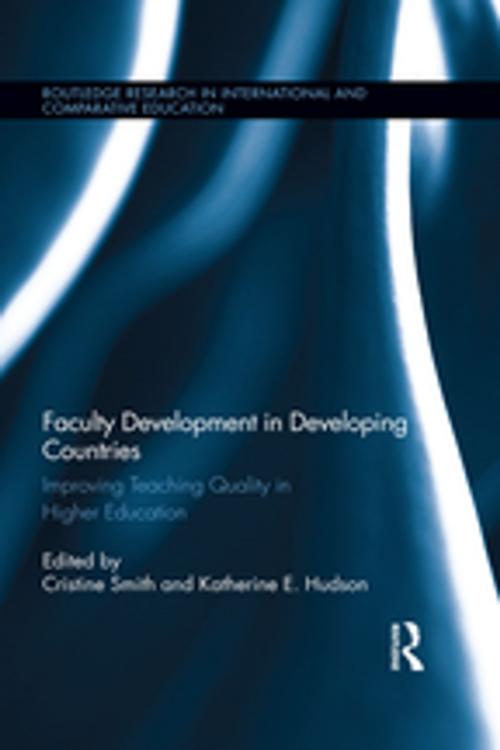Faculty Development in Developing Countries
Improving Teaching Quality in Higher Education
Nonfiction, Reference & Language, Education & Teaching, Higher Education, Teaching, Teaching Methods| Author: | ISBN: | 9781317554608 | |
| Publisher: | Taylor and Francis | Publication: | November 18, 2016 |
| Imprint: | Routledge | Language: | English |
| Author: | |
| ISBN: | 9781317554608 |
| Publisher: | Taylor and Francis |
| Publication: | November 18, 2016 |
| Imprint: | Routledge |
| Language: | English |
Learner-centered approaches to teaching, such as small group discussions, debates, role plays and project-based assignments, help students develop critical thinking, creativity and problem-solving skills. However, more traditional lecture-based approaches still predominate in classrooms in higher education institutions around the world. Faculty development programs can support faculty members to adopt new teaching methods, even in situations where they face significant challenges due to lack of resources, on-going conflict, political upheaval, or the legacy of colonialism in their educational systems. This volume presents research and practice on faculty development for improving teaching in developing countries. Based on the concept that "we teach as we were taught," the case studies in this volume describe ways to organize professional development to help higher education faculty members shift from lecture-based to active learning teaching for students who will become the next generation of teachers, practitioners, professionals and policymakers in their respective countries.
Learner-centered approaches to teaching, such as small group discussions, debates, role plays and project-based assignments, help students develop critical thinking, creativity and problem-solving skills. However, more traditional lecture-based approaches still predominate in classrooms in higher education institutions around the world. Faculty development programs can support faculty members to adopt new teaching methods, even in situations where they face significant challenges due to lack of resources, on-going conflict, political upheaval, or the legacy of colonialism in their educational systems. This volume presents research and practice on faculty development for improving teaching in developing countries. Based on the concept that "we teach as we were taught," the case studies in this volume describe ways to organize professional development to help higher education faculty members shift from lecture-based to active learning teaching for students who will become the next generation of teachers, practitioners, professionals and policymakers in their respective countries.















